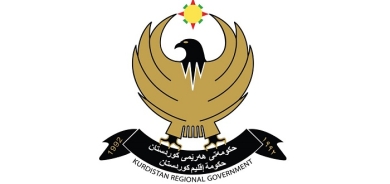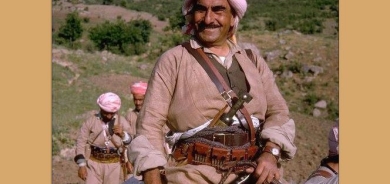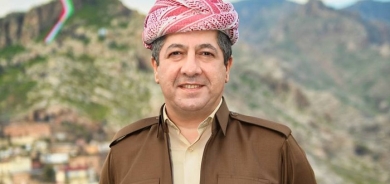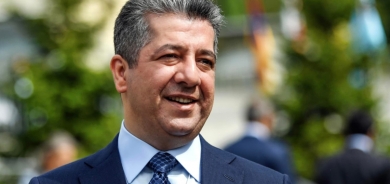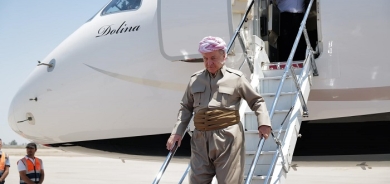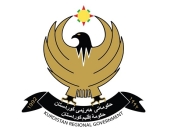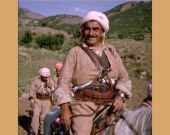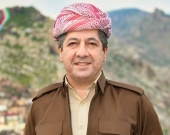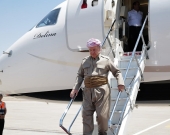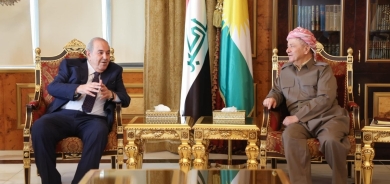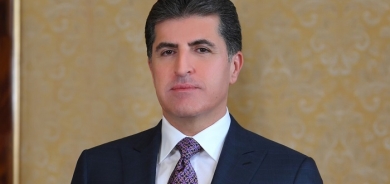1991 spring uprising: A meaning to life, a meaning to history

* When we say that the 1991 spring uprising was the uprising of Kurdish people and they handed it to the Kurdistani Front, we mean that:
1- The Kurdish people consider all the political parties and aspects in the Kurdistani Front as their representative, if the uprising was a respond to the desire of Kurdistani Front, the Kurdish people had responds to all the parties of the Kurdistani Front. We don't say each party according to its capacity, because within the Kurdistani Front they had a common leader, and no political aspect has spoken on his behalf, including President Barzani who was the head of Kurdistani Front, confesses the truth and says: "It was the most beautiful day of his life when Kurdistani Front has approved his suggestion to hold elections in Kurdistan region". Therefore: it is true that holding election was the suggestion of the President Barzani, but the decision was by the Kurdistani front.
2- The uprising was the outcome of the will of Kurdish people, but the question is that; how the will of Kurdish people will give a meaning to life after uprising and provide aim to the post-uprising history? The answer to this question makes us follow the aim of political history of Kurdish liberation movement and asks each political party and each political leader the "When the political history of Kurdish liberation movement was valuably in the interest of Kurdish question and when it wasn't? The history is telling us that when the internal elements of Kurdish liberation movement were united and individual freedom and political diversity was respected, that time aim of our political history has matched the aim of Kurdish nation, although the achievements has been tough, but they weren't difficult, great success has been achieved in difficult situations. So, the uprising, as the outcome of the will of Kurdish people, asks for individual freedom and political diversity from groups and political parties, and makes it clear that our current life will reflect no meaning if we don't meet the will of the people of Kurdish uprising, and the history and Kurdish liberation movement will reflect no meaning either, if we don't cooperate and practically don't work for the aim, and also should follow the aim of Kurdish liberation movement. The reason we are referring to this history is to meet the aim again and ask ourselves "Why sometimes our differences become a threat on our unity and our common aim?”
3- This history is telling us that, before the uprising, the political parties are the outcome of the same will of Kurdish people. So the uprising doesn't belong to any political aspect, and the will of the people doesn't become the reflection of the will of any political party, no matter how big any political party is but it is the reflection of the will of Kurdish people. So the political parties shouldn't consider the uprising as the will of any political party. These unveils another truth which is; if the uprising was aiming freedom, then we should theorize our current time through it, in other words; theorizing our current freedom needs unity of Kurdish home, no any aspect alone can theorize our current time or to consider itself as the representative of the all, because since the history belongs to all, the our current time belongs to all too. If we read it through our achievements, we can say; the way achievements belong to all, then the shortages and mistakes belong to everyone also. On one hand we are proud of the achievements, and then on the other hand; we should accept and be responsible of the mistakes and shortages also.
4- The uprising has taught us that this country is more beautiful with the diverse political, national and religions. So the second aim of the uprising is working for tolerance and coexistence of differences of perspectives, religions and nations. But tolerance and coexistence requires a system which can proceed and protect tolerance and coexistence, which is building democracy system. What we should learn as a lesson from uprising is that Kurdish people, different from all Middle Eastern nations, have decided about the system to rule after the uprising and it should be democracy, so the Kurdish people, in May the 19th 1992 with their differences of opinion, national and religion, and with wearing traditional clothes and Kurdish dancing they had headed toward ballot boxes, they didn't head toward ballot boxes so as to vote for KDP or PUK or other political parties, they went to vote for democracy and to build the foundation stone of democracy in this country. Just like president Barzani claimed in the election campaign in 1992 and mentioned "It is not important which of KDP or PUK will get more votes, the important point is to have the election process succeed" and also emphasized on “The success of the election process means the winning of all the Kurdistani people". Referring back to this history is for reading our current time, and the question we ask is "What steps we should take in order to have Kurdistani nation succeed?” We should take the same step and to fill the gaps of the ruling in Kurdistan, but how? Certainly by the cooperation between all the political parties and participation of Kurdistani people, the aim of ruling and opposition parties is to meet the desires of the people, not exploiting the desires for their political interests. Responding to the desires of the people is another aim of the uprising.
5- The uprising taught us that; the Kurdish uprising was against the violation of human rights, that is why within the deepest enthusiastic although they arrested lots of internees of the Iraqi army but they been sent back home with respect. It was another message just like American declaration message which states that American should be set free, they have mentioned several times in which it doesn't mean freedom only under British colony, but free republic of America should be created. The uprising has the same message of freedom and asks us to create free republic of Kurdistan, which requires reading history and giving meaning to the message of uprising again, and that is the responsibility of all.
The uprising is telling us that I'm part of the blood of Kurdish girl and women, so part of the freedom is for the Kurdish women and no one has the right to take it from them or to give them freedom, because they have sacrificed and drew this freedom by their blood and gave many injuries and martyrs for the success of the uprising. In the post-uprising period Kurdish women should be free and we their rights should be respected and they should be given opportunity according to their capacity as some mentions: (They are more than half of the nation), so girls and women should as the boys and men of this nation: Why as the girls and women came to the uprising front and got injured or martyred, there were no difference between man and women? Why you make differences between man and women in the distribution of rights?
Reconstruction in post-uprising period is more important than the uprising:
The success of uprising is not only to topple a regime, but the success finds itself within the building of the system that takes the place of the fallen regime. If we compare the uprising of Kurdish people with the South or Middle people of Iraq, they also could make the uprising in the spring of 1991 and rescued many provinces, but since they couldn't protect the freedom they don't express about their uprising like we do, or at least they cannot combine their current time to that event or to read their current situation through that uprising. So the priority of the success of uprising is to achieve the aims. The actions after the uprising give the meaning to the history of the uprising, and it is the continuation of the question we have asked ourselves "What decision should we take and what should we do?” So as we discuss the history of the uprising is not only to deny a system, but also rebuilding new life, this has been the same within the history of all humanity, because the revolutions and uprisings hadn't have one aim, it is true that American and French revolutions aimed freedom and democracy, but Chinese and Russian revolutions weren't for freedom. We see this fact within the Arab revolutions also, aiming freedom and democracy is not the condition, or the people after revolutions to decide about freedom or democracy, regarding this case we contacted Anne F. Pomeroy, Associate Professor of Philosophy and Religion from Richard Stockton College of New Jersey, in an exclusive interview with GULAN magazine she responded as "I think revolutions take place because people feel that they can no longer flourish as that they no longer have the capacity to the powers around them are so impeding they are reducing the quality of life but there is no other option. What I think build the basis of the capacity to actually conduct revolution in a way that is successful is its motivated a great deal more by the love that people have for one another and by the hatred they have for a political enemy. And that way on the other side of the revolution there is solidarity that has been built that cannot be resist. Here in America also I think of the revolution formed our country which we often forget about Americans often forgets that this country was founded on a revolution. And a revolution desired to be out underneath the power of the British Empire and for people to be self determinant so I think it would be American revolution I also think of revolutions now immediately of the revolutions of the Arab Spring particularly those were a great move began and were you so people again coming together to take care of one another in the meth of revolution because revolution is extraordinarily difficult it’s not people its insecurity it presents some kind of difficulties to why are we saying before the solidarity of people is extremely important and taking care of one another to be able to move through that’s the kinds of difficulties that arise upon the basis of revolutionary activity however that’s conducted, but I do think of the Arab spring I also most recently in this country in America I think of the occupy movement which is a kind of ground swelling a popular ground swell it’s not a revolution yet but it has revolutionary ideals I think. I absolutely believe that what needs to motivate the revolution is the care of people for one another in this way they will insure one another’s security, one another’s freedom, one another’s social flourishing. And that is what I think enable you real success coming out of the revolution to really a turning way from a certain form of the relations with one another, economic relations, political relations and social relations and they real turning toward something that’s new because after all that’s meaning of the world it’s a turning around and the people cannot conduct the revolution on the basis of their rejection alone they must conduct a revolution on the basis of the desires to build something that makes everyone feel to have a flourishing and sovereign life".
What Ms. Pomeroy mentioned is relations and cooperation between different elements of the society, which shapes the real meaning of the revolutions and uprisings. This is not only during revolutions and uprising, but also shapes the post-revolution period which is rebuilding process, she also mentioned the role of Americans, if they didn't love and cooperate with each other the revolutions wouldn't have succeeded, even after revolutions if they didn't continue to love each other free republic of America wouldn't have been established. So no one should ever forget the American Revolution, because the current America has been built by revolution. Regarding unsuccessful revolutions, as there has been unsuccessful revolutions in Kurdistan and all around the world, we contacted Professor Daniel Garber, professor of Philosophy at Princeton University, despite his considering the post-revolution period as a difficult one, he thinks not all the revolutions have been successful, within these regards he responded to the questions of GULAN magazine and said " I think that is very difficult to answer in a sort of general way because there are certainly many different examples of revolution and uprising that happened for very different reasons. my obvious example of the English civil war, the American revolution, the French revolution, the Russian revolution those are just some of the revolutions that have happened and each of them is very different who it is that was revolting why they were revolting what the outcome was and I would hesitate to make any sort of simple generalization about what it is revolutions meant. I don’t think that it’s true that nothing can stand against it for example the revolution of 1905 in Russia was suppressed there have been another revolutions that have been suppressed it’s possible that the revolution and uprising in Syria now will be suppressed, I think every revolution has got to realize that it’s not going to be easy afterwards and that won’t necessarily succeed I thing the experience for example the Napoleon era of the French revolution is very interesting I think what's going on in Egypt now it’s very interesting and what’s going on in Libya is very interesting it’s not going to be easy it’s in a certain way perhaps easer to over through an oppressive government that it’s to set up a better and a new one. Well the American revolution resulted in this democracy although I think that one can say that it took considerable matter of time for the democracy to develop, but the Chinese revolution did not result in democracy, the Russian revolution did not result in democracy, whether or not revolution followed by democracy again depend on a lot of local factors as an advocate for democracy one hopes that revolution will result in democracy but experience has been that, that doesn’t always happen".
So again the aim of the revolution shapes the history and identity of the revolution, regarding national revolutions, like revolution of an oppressed nation, we contacted Professor Donald P. Moynihan, Faculty affiliate at University of Wisconsin-Madison, he expressed his responds to GULAN magazine as "I think there has to be broad based support for the goals of the revolution in the society among different groups so to take the American Revolution as an example, here you had a rowdily broad group of society who believe that they will be oppressed by the British colonial system. I think we do have examples in the history were uprisings in the basis have found new nation, I think one of the most important things so for these nations succeeded is that they can find the way to get along with the neighbors, so I think in the American case because America is geographically isolated that was a little bit easer realest examples of some places Europe and former Yugoslavia or even Ireland were you had uprisings let longer disagreement between neighbors in general I think finding areas of agreement between different parts of society or different parts of the country is important to try to sustain some sort of long term peace after and uprising take place. I think having an ability to not just go to revolution and uprising but also think about the structure of governance afterwards is very important so maintaining some sort of long term success from uprising in American case the design of governance here makes it so that no single group or party can completely dominate and so that no one can take over a sort of dictatorial power or royal power that would make one person much more important than the rest of society I think this a pretty good lesson for other countries because it suggest that having separation of power produces potential that any group cannot dominate another group".
The important point is that; how the mechanism of unity and cooperation during and after the success of revolution will? We asked Professor Stuart R. Cohn, professor of law at Florida University, in his responds to GULAN magazine: "I think the two most important factors are transparency and participations what I mean by that is that the population is advices at all times of exactly who is in power and what the policies are of the parties that are in power and by participation I mean that the population has given the opportunity through elections direct elections to have a voice to who the people are that actually operate those policies I think that those are the most important elements transparency and public participations. It’s a very important first step because as you explained the problem of uprising nations means that people are not been given their basic rights, sovereignty justice and freedom to act as titled to and therefore a revolution is an attempt to restore that to free people who has been improperly imprisoned and to restore a sense of justice to that country its extremely important first step in trying to do that. It can be a very important factor because the rebuilding process is going to need assistance of outside countries assisting that rebuilding process and if there is transparence and good intention and integrity of the new leaders it will be very important to the third parties to come in for assistance for rebuilding because if it becomes an oppressed nation at the time of revolution the country does not have adequate resources to rebuild the company of the country through infrastructures and telecommunications and healthcare and all the kinds of important things that is necessary education to rebuild the country often the revolution comes at the time that the country does not have these resources there for its very important for the new leaders to be able to establish the confidence of outside countries and ageneses to assist in the rebuilding process until that country develop its own resources and create its own instructions to its own capacities".
Translated by: Sheban Ferhad

